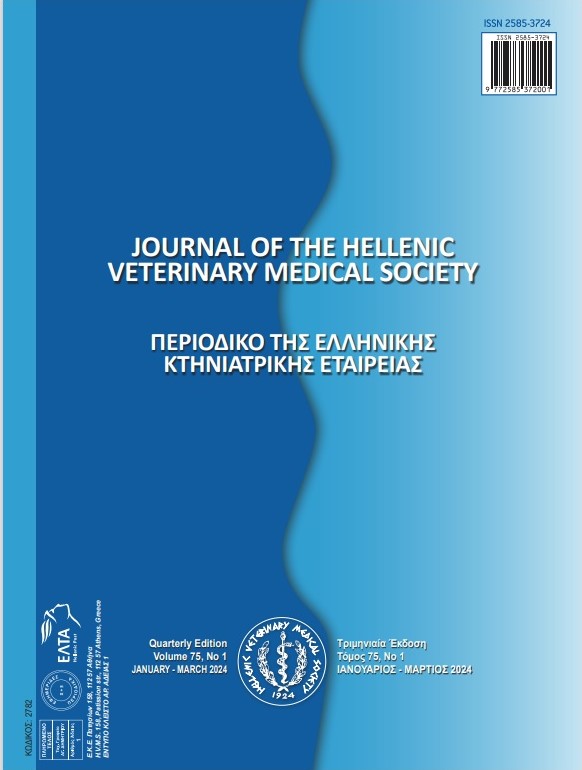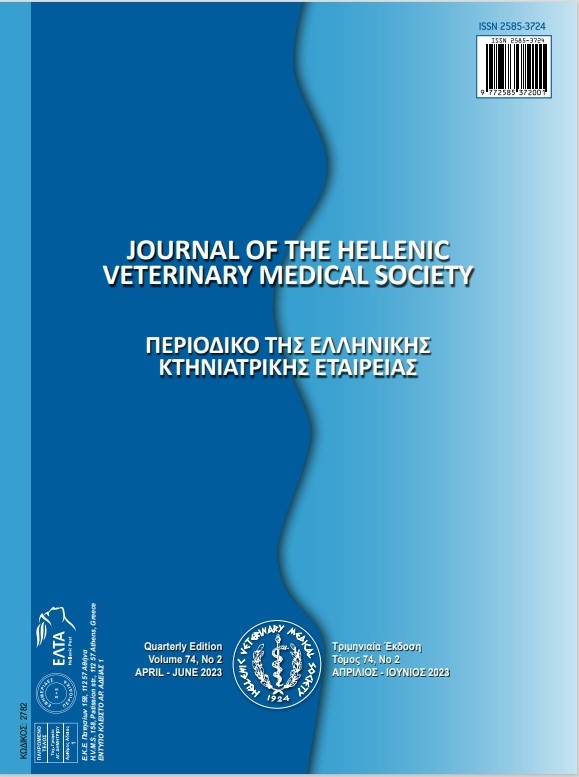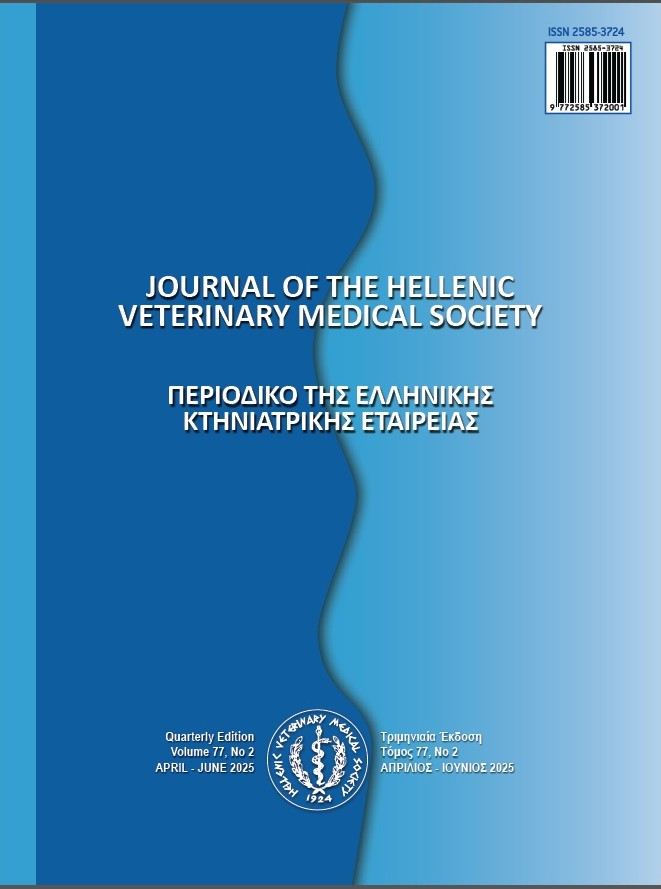Determination of the effect of Hypericum perforatum oil supplementation on silage quality in ruminant feeding
Аннотация
This study evaluated the effect of Hypericum perforatum oil (HPO) on chemical composition, fermentation traits and metabolic energy, in vitro organic matter digestibility, and net energy lactation of Hungarian vetch-wheat silages. The treatments were: (i) control (No HPO), (ii) 20 mg/kg HPO, (iii) 40 mg/kg HPO, (iv) 80 mg/kg HPO and (v) 160 mg/kg HPO in Hungarian vetch-wheat silages. After 75 days of ensiling, dry matter, NDF and ADF were increased by adding 20 mg/kg and 40 mg/kg Hypericum perforatum oil to Hungarian vetch-wheat silage (p<0.01). However, there was no significant in the content of silage in lactic acid, acetic acid, propionic acid, metabolic energy, in vitro organic matter digestibility, and net energy lactation (p>0.05). Butyric acid and ammonia nitrogen were not found in the experiment silages. Finally, it was concluded that the addition of 20 mg/kg Hypericum perforatum oil may have a positive effect on the quality of Hungarian vetch-wheat silages.
Article Details
- Как цитировать
-
Arslan Duru, A. (2024). Determination of the effect of Hypericum perforatum oil supplementation on silage quality in ruminant feeding. Journal of the Hellenic Veterinary Medical Society, 75(2), 7471–7478. https://doi.org/10.12681/jhvms.34911
- Выпуск
- Том 75 № 2 (2024)
- Раздел
- Research Articles

Это произведение доступно по лицензии Creative Commons «Attribution-NonCommercial» («Атрибуция — Некоммерческое использование») 4.0 Всемирная.
Authors who publish with this journal agree to the following terms:
· Authors retain copyright and grant the journal right of first publication with the work simultaneously licensed under a Creative Commons Attribution Non-Commercial License that allows others to share the work with an acknowledgement of the work's authorship and initial publication in this journal.
· Authors are able to enter into separate, additional contractual arrangements for the non-exclusive distribution of the journal's published version of the work (e.g. post it to an institutional repository or publish it in a book), with an acknowledgement of its initial publication in this journal.
· Authors are permitted and encouraged to post their work online (preferably in institutional repositories or on their website) prior to and during the submission process, as it can lead to productive exchanges, as well as earlier and greater citation of published work.





